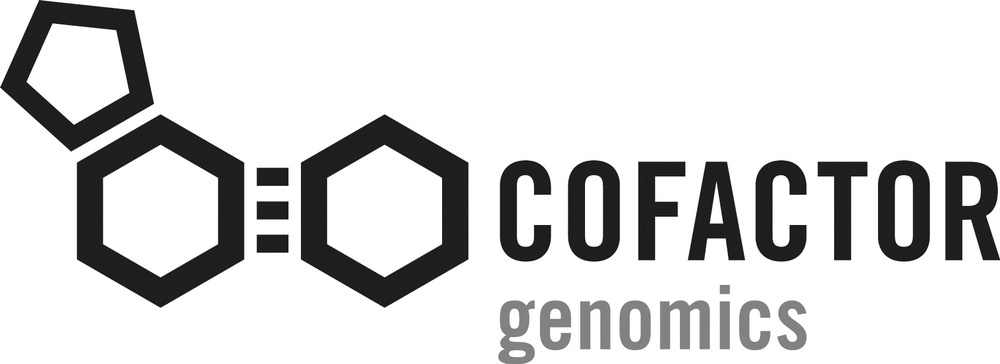PROVIDENCE, R.I. – March 8, 2021 – Cofactor Genomics, the company bridging the precision medicine gap, announced today new data published in Frontiers in Oncology1 by Women & Infants Hospital of Rhode Island. The data highlight the utility of Cofactor’s Predictive Immune Modeling technology in elucidating the immune landscape of epithelial ovarian cancer (EOC) for immunotherapy development, and to identify prognostic indicators of response to frontline chemotherapy.
EOC is the most lethal of all gynecological malignancies, with more than 21,000 diagnoses and almost 14,000 deaths anticipated from the disease in the United States in 2020.2 Currently, several EOC clinical trials center upon immunotherapy;3 however, while melanoma and non-small cell lung cancer (NSCLC) patients have seen a great benefit from targeting immune checkpoint inhibitors, such cytotoxic T lymphocyte-associated protein-4 (CTLA-4) or programmed cell death protein 1 (PD-1), EOC patients have only exhibited response rates of 10 to 15 percent.4 Despite these poor response rates, evidence suggests that EOC is an immunogenic cancer,5,6 and in the paper, the team led by Jennifer Ribeiro, Ph.D., at Women & Infants Hospital outlined how these results lay the foundation for the development of better immunotherapy agents.
The primary investigator on the study, Dr. Ribeiro, stated, “This study offers new insights into high grade serous ovarian cancer that have the potential to make an impact in how patients are treated in the future. Using the ImmunoPrism platform, we have shown that immunological signatures are indeed related to patient outcomes in ovarian cancer.”
In the study, the authors utilized the Cofactor Genomics ImmunoPrism® platform to evaluate a cohort of high grade serous ovarian cancer (HGSOC) tumors to identify an immune-related gene expression model that may serve as a prognostic indicator of response to frontline chemotherapy. They found that the immunological markers CTLA-4, LAG-3, and Treg immune cells are more abundant in HGSOC patients with longer progression-free survival (PFS). Moreover, they investigated which immunological features in a tumor led to improved outcomes, which represent opportunities for novel immunotherapeutic approaches. The study also revealed that ICOS was significantly more highly expressed in patients with longer PFS, and strongly correlated with CTLA-4, PD-1, and specific subsets of immune cell infiltration. The results from the tumor cohort were confirmed using The Cancer Genome Atlas (TCGA) ovarian cancer dataset where high ICOS and LAG-3 levels were also significantly associated with longer survival.
The study builds on Cofactor’s previously presented work using its Predictive Immune Modeling technology to identify novel immune signals in other disease indications, including sarcoma, non-small cell lung cancer (NSCLC), and recurrent and metastatic squamous cell carcinoma of the head and neck (RM-HNSCC). The company has also announced a list of disease targets for diagnostic development and is current recruiting clinical partners: https://cofactorgenomics.com/clinical/
References:
- James NE, Miller K, LaFranzo N, Lips E, Woodman M, Ou J and Ribeiro J (2021) Immune Modeling Analysis Reveals Immunologic Signatures Associated With Improved Outcomes in High Grade Serous Ovarian Cancer. Front. Oncol. 11:622182. doi: 10.3389/fonc.2021.622182
- American Cancer Society. Cancer Statistics Center - Ovary. Available online at: https://cancerstatisticscenter.cancer.org/#!/cancer-site/Ovary (accessed April 9, 2020).
- Lieber S, Reinartz S, Raifer H, Finkernagel F, Dreyer T, Bronger H, et al. Prognosis of ovarian cancer is associated with effector memory CD8+ T cell accumulation in ascites, CXCL9 levels, and activation triggered signal transduction in T cells. Oncoimmunology. (2018) 7:e1424672. doi: 10.1080/2162402X.2018.1424672
- Ghisoni E, Imbimbo M, Zimmermann S, Valabrega G. Ovarian cancer immunotherapy: turning up the heat. Int J Mol Sci. (2019) 20:2927. doi: 10.3390/ijms20122927
- Zhang L, Conejo-Garcia JR, Katsaros D, Gimotty PA, Massobrio M, Regnani G, et al. Intratumoral T cells, recurrence, and survival in epithelial ovarian cancer. N Engl J Med. (2003) 348:203–13. doi: 10.1056/NEJMoa020177
- Kandalaft LE, Powell DJ, Singh N, Coukos G. Immunotherapy for ovarian cancer: what’s next? J Clin Oncol. (2011) 29:925– 33. doi: 10.1200/JCO.2009.27.2369
About Cofactor
Cofactor Genomics is on a mission to close the Precision Medicine Gap through Predictive Immune Modeling. Cofactor has leveraged its experience as one of the first CAP-certified, clinical RNA sequencing laboratories to develop new methods that accurately and holistically characterize disease. Instead of searching for isolated, single-analyte biomarkers, Cofactor’s products create multidimensional biomarkers that better capture the complex immune response. Cofactor has spent years pioneering the molecular and machine learning tools to build a database of Health Expression Models, now integrated into our multidimensional diagnostics. Cofactor Genomics empowers clinicians to be better informed while making treatment decisions to improve patient outcomes.




